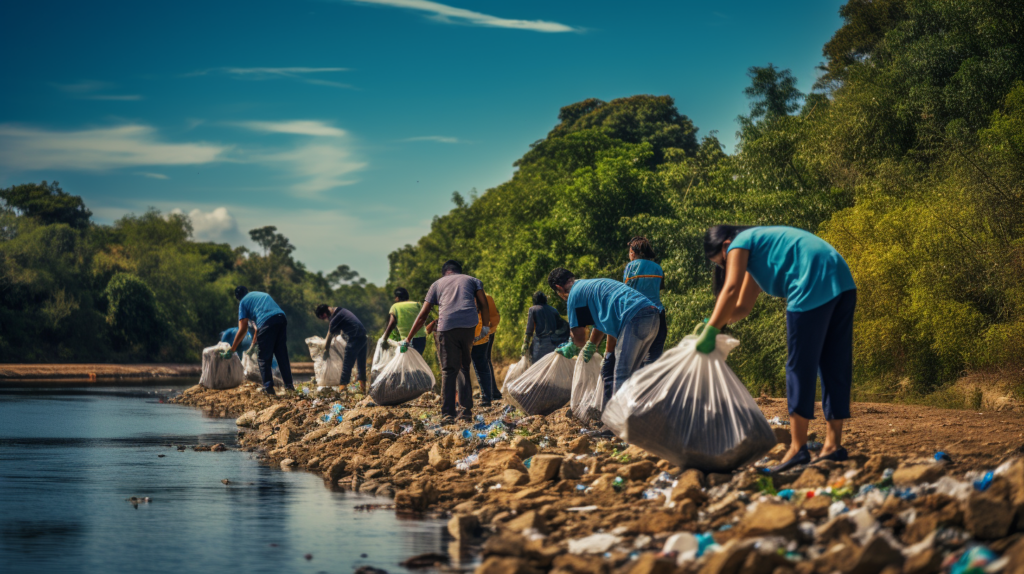Welcome, fellow traveler and aspiring volunteer! If you have the passion to make a positive impact while exploring new destinations, then responsible tourism and volunteering may just be the perfect fit for you. In this article, we will delve into the world of responsible tourism and the ethical practices that every volunteer should follow to ensure a meaningful experience for both themselves and the communities they visit.
Volunteering abroad can be an incredibly rewarding experience, allowing you to immerse yourself in a different culture, meet new people, and make a difference in the lives of others. However, it is essential to approach volunteering with the right mindset and a commitment to responsible practices. By doing so, you can ensure that your contributions have a positive and sustainable impact on the communities you engage with.
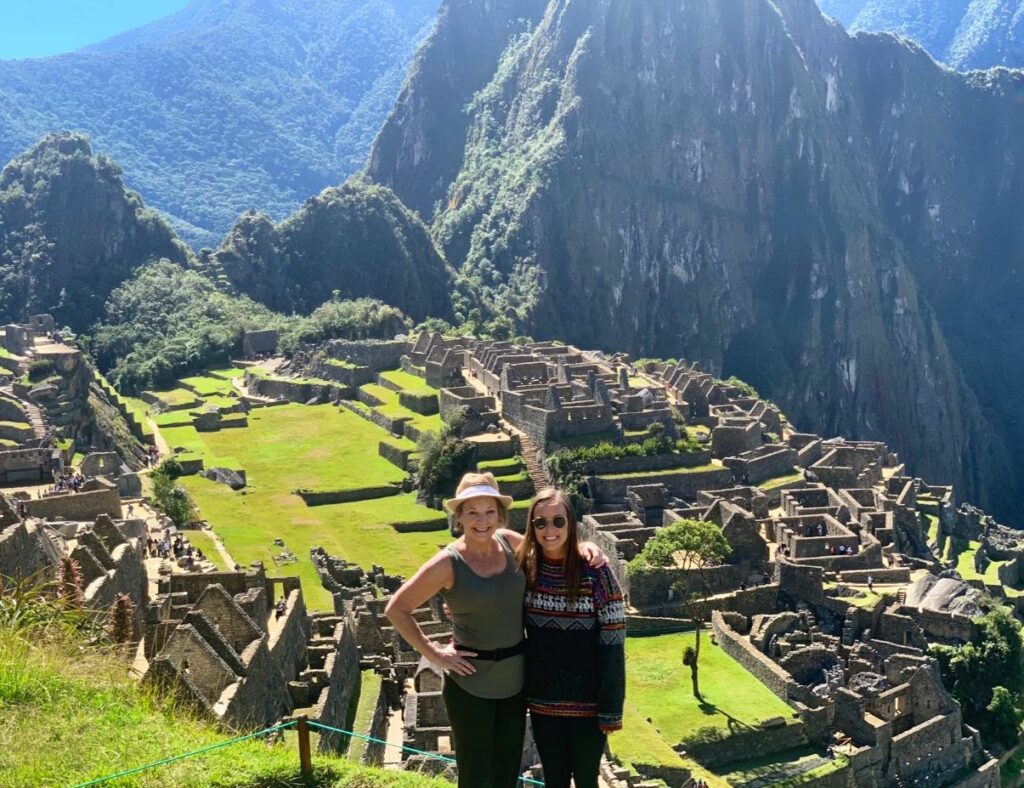
Throughout this article, we will explore various aspects of responsible tourism and volunteering. We will discuss how to select the right volunteering program, the importance of cultural awareness, environmental considerations, responsible interactions with communities, contributing to sustainable development, health and safety guidelines, and the importance of reflection and continued learning. So, let’s embark on this journey together and discover the path to responsible tourism!
Understanding Responsible Tourism
Responsible tourism is a growing concept that aims to promote sustainable and ethical travel practices. It emphasizes the importance of minimizing negative impacts on the environment, respecting local cultures and communities, and contributing to the development and well-being of the destinations we visit. By practicing responsible tourism, we can ensure that our travel experiences have a positive and lasting impact.
Definition and Principles
Responsible tourism can be defined as traveling in a way that is socially, culturally, and environmentally responsible. It involves making conscious choices that benefit both the travelers and the destinations they visit. Some key principles of responsible tourism include:
- Minimizing negative impacts: Responsible tourists strive to minimize their negative impacts on the environment, culture, and communities. They are mindful of their resource consumption, avoid generating excessive waste, and respect the local customs and traditions.
- Respecting local cultures and communities: Responsible tourism emphasizes the importance of respecting the local cultures and communities. This means being sensitive to social norms, customs, and traditions, and interacting with locals in a respectful and considerate manner.
- Contributing to local development: Responsible tourists actively seek to contribute to the development and well-being of the local communities they visit. This can include supporting local businesses, participating in community projects, and engaging in activities that empower and benefit the local population.
The Importance of Responsible Tourism
Responsible tourism is crucial for sustainable development and the preservation of our planet’s natural and cultural heritage. Here are some reasons why responsible tourism is so important:
- Preserving the environment: By adopting eco-friendly practices and supporting conservation efforts, responsible tourists help protect natural resources and preserve fragile ecosystems. This ensures that future generations can continue to enjoy and benefit from the beauty and biodiversity of our planet.
- Promoting cultural understanding: Responsible tourism promotes cultural exchange and understanding. By respecting and engaging with local cultures, tourists have the opportunity to learn from different perspectives and broaden their horizons. This fosters respect, tolerance, and positive interactions between people from diverse backgrounds.
- Supporting local economies: Responsible tourism can have a significant impact on local economies. When tourists choose to support local businesses, artisans, and service providers, they help create employment opportunities and boost the local economy. This can contribute to poverty reduction and sustainable development in the destination.
- Creating positive change: Responsible tourists have the power to create positive change in the destinations they visit. By engaging in volunteer projects, supporting community initiatives, and advocating for responsible practices, they can make a tangible difference in the lives of local communities and contribute to their long-term development.

As responsible tourists, we have a responsibility to be conscious of the choices we make while traveling. By understanding the principles and importance of responsible tourism, we can make informed decisions that have a positive impact on the destinations and communities we visit. So, let’s embark on our travels with a commitment to responsible tourism and make a difference, one trip at a time.
Selecting the Right Volunteering Program
When it comes to embarking on a volunteering journey, one of the most crucial steps is selecting the right volunteering program. With countless organizations and projects to choose from, it’s important to do your research and consider various factors before making a decision. Here are some key considerations to keep in mind when selecting the right volunteering program:
Researching Ethical Organizations
- Look for organizations that have a transparent and ethical approach to their volunteer programs.
- Check if the organization has a clear mission statement and values that align with your own.
- Research the organization’s reputation by reading reviews and testimonials from past volunteers.
- Look for certifications or affiliations with reputable associations, such as the International Volunteer Programs Association (IVPA) or the United Nations World Tourism Organization (UNWTO).
Assessing the Impact of Volunteer Projects
- Consider the impact of the volunteer projects offered by the organization.
- Look for programs that focus on sustainable development, community empowerment, and long-term solutions.
- Assess whether the projects are aligned with the needs and priorities of the local community.
- Research how the organization measures and evaluates the impact of their projects.
Considering Cultural Sensitivity
- Take into account the cultural sensitivity of the volunteering program.
- Look for organizations that prioritize cultural exchange and respect for local customs and traditions.
- Consider whether the program provides cultural orientation and training to volunteers.
- Research how the organization engages with the local community and whether they involve community members in decision-making processes.
Remember, selecting the right volunteering program is not just about finding a project that matches your skills and interests. It’s also about finding an organization that upholds ethical standards and contributes to sustainable development. By taking the time to research and consider these factors, you can ensure that your volunteering experience makes a positive and responsible impact.
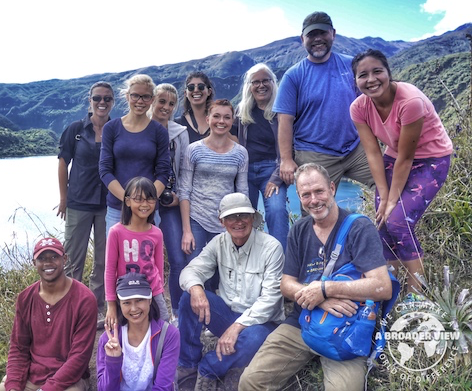
Preparation and Cultural Awareness
When embarking on a volunteering program abroad, it’s essential to be prepared and culturally aware. Understanding and respecting the local customs and traditions is not only a sign of respect, but it also helps create a positive and harmonious environment for both the volunteers and the local community. Here are some tips to help you be prepared and culturally sensitive during your volunteering experience:
1. Learning about Local Customs and Traditions
Before you set foot in your destination country, take the time to educate yourself about the local customs and traditions. This will help you avoid cultural faux pas and show respect for the local culture. Some ways to learn about local customs and traditions include:
- Research: Read books, articles, or travel blogs about the local culture and customs. Pay attention to topics like greetings, gestures, and taboos.
- Connect with locals: Reach out to people from the destination country. You can join online communities or forums and ask questions to get insights from locals themselves.
- Attend cultural workshops: Some organizations or local community centers offer cultural workshops for volunteers. These workshops help you gain a deeper understanding of the local customs, traditions, and social norms.
2. Language Basics and Communication
Being able to communicate with the locals in their language can build strong connections and bridges cultural gaps. Here are a few language-related tips to consider:
- Learn basic phrases: Familiarize yourself with common phrases such as greetings, thank you, please, and sorry. Locals appreciate the effort to communicate in their language, even if you’re not fluent.
- Practice active listening: Pay attention to the locals’ tone, body language, and non-verbal cues. These can provide valuable information about their feelings and emotions.
- Accept language barriers: Understand that there may be language barriers, especially if you’re volunteering in a country with a different native language. Be patient and find alternative ways to communicate, such as using gestures or visual aids.
3. Respecting Dress Codes and Behavior
Each culture has its own dress codes and behavioral norms. Adhering to these guidelines shows respect for the local culture and can help you avoid inadvertently causing offense. Here are some factors to consider:
- Observe local clothing styles: Dress modestly and blend in with the locals whenever possible. Be aware of any specific dress codes, such as covering your shoulders or wearing long pants.
- Respect social norms: Different cultures have different norms regarding personal space, greetings, and body language. Observe how the locals behave and adapt accordingly.
- Be mindful of religious and sacred sites: If you’re visiting religious or sacred sites, make sure to dress appropriately and follow any guidelines or rituals in place. Show reverence and avoid any disrespectful behavior.
Cultural awareness and preparation are key to creating a meaningful and impactful volunteering experience. By respecting local customs and traditions, you not only contribute to a positive community relationship but also gain a deeper understanding and appreciation for the local culture. So, take the time to prepare, educate yourself, and embrace the cultural differences that make your volunteering journey truly enriching.
Environmental Considerations
When engaging in volunteer tourism, it is crucial to consider the environmental impact of your actions. By being mindful of conservation and sustainable practices, you can contribute to the preservation of fragile ecosystems and minimize your carbon footprint. Here are some key considerations to keep in mind:
Conservation and Sustainable Practices
- Be mindful of your water usage: Water is a precious resource, especially in many developing countries. Take short showers, turn off taps when not in use, and consider using water-saving devices.
- Conserve energy: Turn off lights, fan, and other electronic devices when not in use. Use energy-efficient bulbs, and opt for natural ventilation instead of air conditioning, if possible.
- Respect wildlife: When participating in wildlife-related activities, ensure they are conducted ethically and in line with animal welfare regulations. Avoid supporting activities that exploit animals for entertainment.
- Leave no trace: Always clean up after yourself and properly dispose of waste. Avoid littering, and if possible, carry a reusable water bottle and shopping bag to minimize plastic waste.
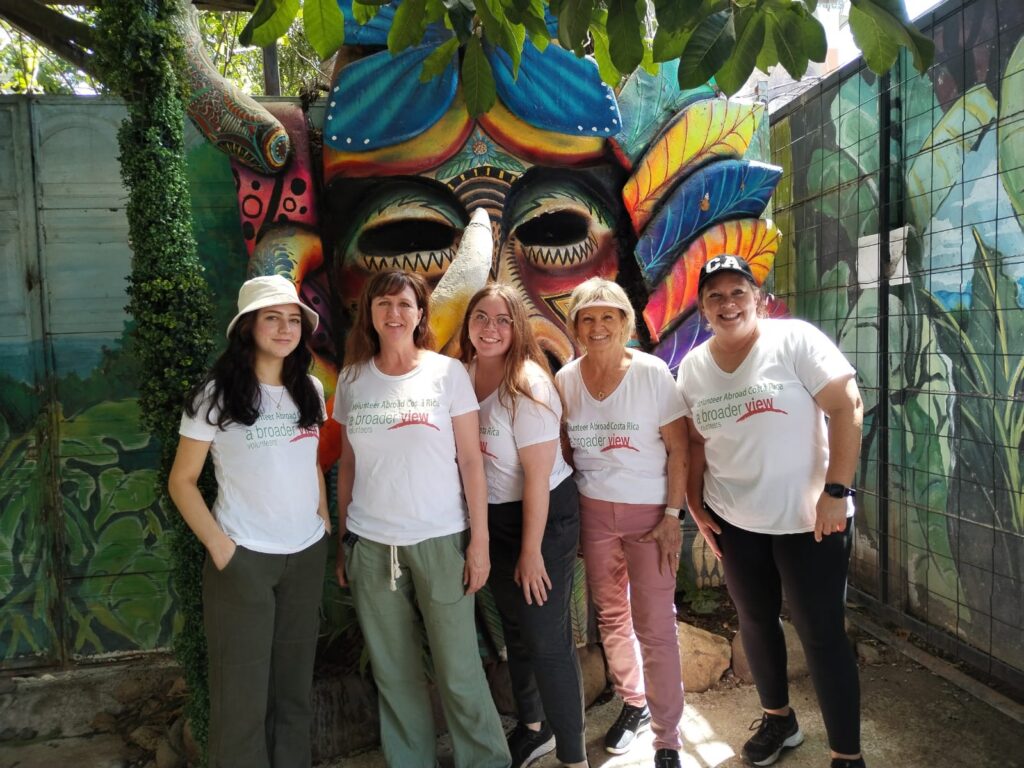
Minimizing Waste and Environmental Impact
- Reduce, reuse, and recycle: Prioritize reducing your waste by avoiding single-use plastics and packaging. Reuse items whenever possible, and properly separate recyclable materials.
- Pack consciously: Opt for eco-friendly products such as biodegradable toiletries and reusable containers. Minimize packaging and consider the environmental impact of the products you bring.
- Support sustainable tourism initiatives: Choose accommodations and tour operators that have eco-friendly practices and support local conservation projects. Look for certifications such as Green Key or Rainforest Alliance.
- Offset your carbon footprint: Consider offsetting the carbon emissions generated from your travel by investing in carbon offset projects. This helps to neutralize the environmental impact of your journey.
By incorporating these practices into your volunteer tourism experience, you can make a positive contribution to the environment and help protect the natural resources of the communities you visit. Remember, every small action counts, and together we can make a difference in preserving our planet for future generations.
Responsible Interactions with Communities
When engaging in volunteer work abroad, it’s crucial to prioritize responsible interactions with the communities you will be working with. This involves understanding and respecting the local culture, avoiding exploitative practices, and being mindful of power dynamics. By approaching your interactions in a responsible manner, you can have a positive impact on the community and build meaningful relationships. Here are some key considerations to keep in mind:
Understanding Power Dynamics
In any community, power dynamics exist, and it’s important to recognize and respect them. Be aware of the local authority figures and cultural hierarchies. Take the time to learn about the social structure and customs of the community you will be working with. By understanding and acknowledging these dynamics, you can ensure that your interactions are respectful and avoid unintentional offense.
Respecting Local Authority and Customs
Responsible volunteering means respecting the authority of local leaders and following their guidance. Always seek permission and approval before implementing any projects or initiatives. It’s important to remember that you are a guest in the community and should adhere to their customs and traditions. Show humility, listen actively, and be open to learning from the community members.
Avoiding Exploitative Practices
One of the key principles of responsible tourism is to avoid exploiting vulnerable communities. Ensure that your volunteer work is driven by the needs and priorities of the community, rather than your own agenda. Be cautious of any project or activity that might exploit the community’s resources, labor, or culture. Instead, focus on empowerment and collaboration, working alongside community members rather than taking over their roles.
“Responsible volunteering means respecting the community and empowering them rather than imposing our own ideas and solutions.” – Dr. Jane Doe, Ethnographer
By following these principles, you can ensure that your interactions with the community are responsible and sustainable. Remember that building genuine relationships takes time and effort. It’s not just about completing a project; it’s about creating a lasting impact and leaving a positive legacy. Approach your interactions with empathy, cultural sensitivity, and a willingness to learn from the community.
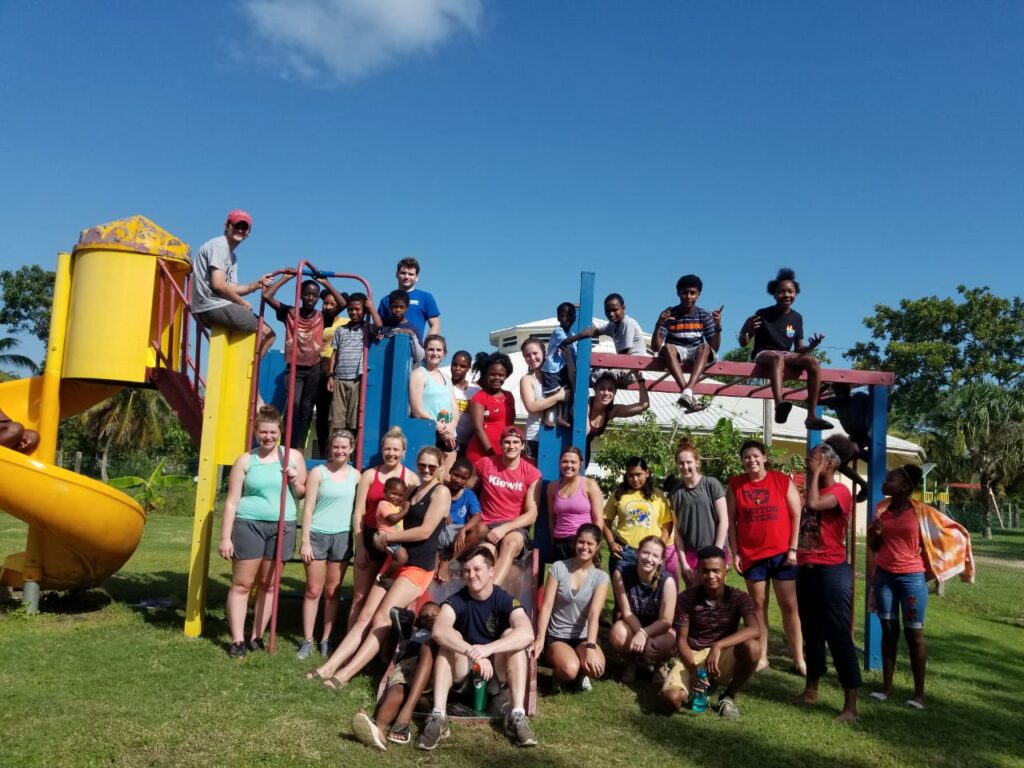
Contributing to Sustainable Development
When embarking on a volunteering program, it’s important to have a mindset of contributing to sustainable development. Sustainable development refers to an approach that seeks to balance economic, social, and environmental factors in order to create long-term benefits for both the host community and future generations. As a responsible volunteer, there are several ways you can contribute to sustainable development during your time abroad. Here are some key considerations:
Supporting Local Initiatives and Economies
One of the best ways to contribute to sustainable development is by supporting local initiatives and economies. By purchasing goods and services from local businesses, you are helping to stimulate the local economy and create opportunities for local entrepreneurs. This can have a ripple effect on the community, as increased economic activity can lead to job creation and improved living standards. Additionally, supporting local initiatives such as community-led projects or social enterprises can help address specific needs within the community.
Empowering Local Communities
True sustainable development involves empowering local communities to take charge of their own futures. As a volunteer, it’s important to approach your work with a mindset of collaboration and empowerment. Instead of imposing your own ideas or solutions, seek to understand the needs and aspirations of the community you are working with. By involving local community members in decision-making processes and providing them with the necessary resources and skills, you can help build their capacity to address challenges and create sustainable change.
Long-term Impact vs. Short-term Gratification
While it can be tempting to focus on short-term results and immediate gratification, it’s crucial to consider the long-term impact of your actions as a volunteer. Sustainable development requires us to think beyond immediate fixes and consider the broader implications of our interventions. This means looking for solutions that have lasting effects and considering the potential unintended consequences of our actions. By prioritizing long-term impact over short-term gratification, we can ensure that our efforts contribute to sustainable change.
It’s important to remember that contributing to sustainable development is a continuous process that extends beyond the duration of your volunteering program. You can continue to make a difference even after you’ve returned home by sharing your experiences and raising awareness about the importance of responsible volunteering. By inspiring others and encouraging them to adopt sustainable practices, you can multiply the impact of your efforts and contribute to a more sustainable future.
“The ultimate test of a moral society is the kind of world it lives to create for its children.” – Dietrich Bonhoeffer
In conclusion, as a responsible volunteer, your actions and choices can have a significant impact on the communities you work with. By supporting local initiatives, empowering local communities, and prioritizing long-term impact, you can contribute to sustainable development during your volunteering program. Remember, responsible tourism is not just about today – it’s about creating a better world for future generations.
Health and Safety Guidelines
When embarking on a volunteering program, ensuring your health and safety should be a top priority. Whether you’re working in a remote village or a bustling city, it’s important to take necessary precautions to protect yourself and others. Here are some guidelines to follow:
Vaccinations and Medical Precautions
Before traveling to your volunteering destination, it’s essential to consult with a healthcare professional to understand the specific vaccinations and medical precautions you should take. Every region has different health risks, and some countries may require certain vaccinations as a condition of entry.
Here are some common vaccinations that may be recommended for travelers:
- Hepatitis A and B: Protects against liver infections.
- Typhoid: Guards against a bacterial infection transmitted through contaminated food and water.
- Tetanus: Prevents an infection caused by bacteria entering wounds.
- Rabies: Recommended if you’re going to be in close contact with animals.
- Malaria: If you’re traveling to a region with a high prevalence of malaria, anti-malarial medication may be necessary.
Remember to schedule your vaccinations well in advance, as some may require multiple doses over a period of time to be fully effective. Additionally, make sure to pack any necessary medications and a first aid kit for minor injuries or illnesses.

Staying Safe during Volunteering Activities
While volunteering, it’s important to prioritize your safety and the safety of those around you. Here are some tips to keep in mind:
- Follow the guidance of local staff: They are familiar with the environment and can provide insights on potential risks or dangers.
- Dress appropriately: Wear suitable clothing and footwear for the tasks you’ll be undertaking.
- Use personal protective equipment (PPE): Depending on the nature of your volunteering activities, you may need to wear items such as gloves, helmets, or safety goggles.
- Practice good hygiene: Wash your hands regularly, especially before meals and after using the restroom. Use hand sanitizer when soap and water are not available.
- Stay hydrated: Drink plenty of water throughout the day, especially in hot or humid climates.
- Be cautious with food and water: Consume only bottled or purified water and avoid street food or undercooked meals that may pose a risk of foodborne illnesses.
- Follow local laws and customs: Respect the rules and regulations of the country you’re visiting, as well as the customs and traditions of the local community.
Always be aware of your surroundings and report any safety concerns or incidents immediately to the appropriate personnel.
Remember, by following these health and safety guidelines, you can ensure a smooth and secure volunteering experience for both yourself and those you’re there to help.
Reflection and Continued Learning
As you wrap up your volunteering experience, it’s essential to take the time for reflection and continued learning. This phase allows you to process your experiences, evaluate your impact, and glean valuable insights for future endeavors. Here are some key aspects to consider during this phase:
Debriefing and Evaluation
Taking part in a debriefing session with your volunteer organization or fellow volunteers can be incredibly beneficial. It provides an opportunity to share your experiences, discuss challenges faced, and explore different perspectives. By reflecting on your time spent volunteering, you can gain a deeper understanding of the impact you had and identify areas for improvement.
During the debriefing session, consider the following questions:
- What were the highlights of your experience?
- Were there any unexpected challenges?
- Did you achieve the goals you set out for yourself and the community?
- How did the local community respond to your presence and efforts?
- What lessons have you learned that can be applied to future volunteering opportunities?
Engaging in Post-Volunteering Reflection
Once you have completed your debriefing, take some time for personal reflection. Journaling can be a helpful tool to process your thoughts and emotions, while also documenting your experiences. Consider writing about the following aspects:
- Your personal growth and development during the volunteering experience.
- The impact you witnessed on the local community.
- Any cultural insights you gained.
- Challenges you faced and how you overcame them.
- Lessons you learned about responsible tourism and ethical volunteering.
Sharing Knowledge and Experiences
One of the most valuable contributions you can make after your volunteering experience is to share your knowledge and experiences with others. By sharing your insights, you can raise awareness about responsible tourism and inspire others to get involved. Here are some ways to share your experiences:
- Write a blog post or social media post about your volunteering journey. Share photos and stories that highlight the impact you had and the lessons you learned.
- Give presentations or organize workshops at schools, community centers, or other organizations to educate others about responsible tourism and the importance of ethical volunteering.
- Engage in meaningful conversations with family and friends, encouraging them to consider responsible tourism when planning their own travels.
- If you have the means and time, consider joining local organizations or initiatives that align with responsible tourism and sustainable development.
Remember, volunteering is not just a one-time experience but a journey of continuous learning and growth. By reflecting on your experiences and sharing your knowledge, you can help create a positive and lasting impact on both the communities you worked with and the wider world. So, take the time to reflect, learn, and inspire others to make a difference!
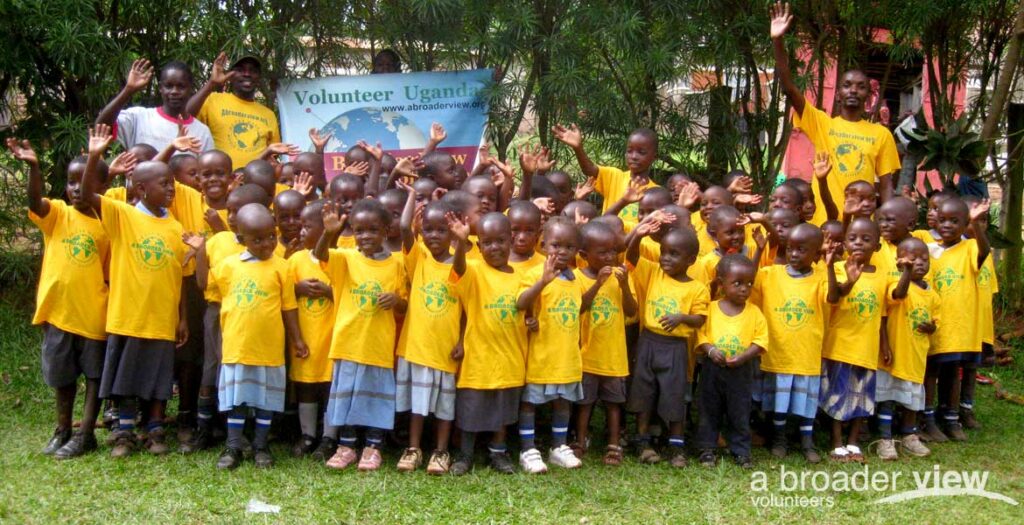
Conclusion
As you can see, responsible tourism is crucial for ensuring that your volunteer experience has a positive and lasting impact on the communities you visit. By understanding and applying the principles of responsible tourism, you can make a difference and contribute to sustainable development.
Here are the key takeaways from this article:
- Responsible tourism is about minimizing negative impacts and maximizing positive ones.
- Selecting the right volunteering program requires thorough research and assessment of its ethical practices and impact.
- Preparation and cultural awareness are essential for respectful interactions with local communities.
- Environmental considerations aim to conserve natural resources and minimize waste.
- Responsible interactions with communities involve respecting local authority and customs and avoiding exploitative practices.
- Contributing to sustainable development means supporting local initiatives, economies, and empowering local communities.
- Health and safety guidelines must be followed to protect yourself and others during your volunteer activities.
- Reflection and continued learning allow for personal growth and the sharing of knowledge and experiences.
By following these guidelines, you can become a responsible and ethical volunteer, making a positive difference in the world. Remember, responsible tourism is an ongoing journey that requires continuous learning and improvement.
So, let’s embark on this path together and make a difference through responsible tourism and volunteering. Happy volunteering!
Frequently Asked Questions
- What is responsible tourism?Responsible tourism refers to the approach of traveling and participating in tourism activities in a way that minimizes negative impacts on the environment, respects local cultures and traditions, and supports the local economy and community development.
- Why is responsible tourism important for ABV volunteers?Responsible tourism is important for ABV volunteers because it ensures that their volunteer activities are conducted ethically, with a focus on sustainability and positive impacts. It helps volunteers engage in culturally sensitive and responsible practices while making a meaningful contribution to the communities they serve.
- What are some best practices for responsible tourism as an ABV volunteer?Some best practices for responsible tourism as an ABV volunteer include: researching and selecting ethical volunteer programs, respecting local customs and traditions, minimizing environmental impact, supporting the local economy, promoting cultural exchange, and prioritizing sustainability in all activities.
- How can ABV volunteers support the local community?ABV volunteers can support the local community by engaging in projects that address their specific needs, collaborating with local organizations and initiatives, respecting local cultures and traditions, supporting local businesses, and promoting long-term sustainability and self-sufficiency.
- What are the benefits of practicing responsible tourism as an ABV volunteer?Practicing responsible tourism as an ABV volunteer brings several benefits, including a positive and enriching cultural exchange, a sense of fulfillment and purpose, a deeper understanding of global issues, improved cross-cultural communication skills, and the ability to leave a lasting, positive impact on the communities served.

